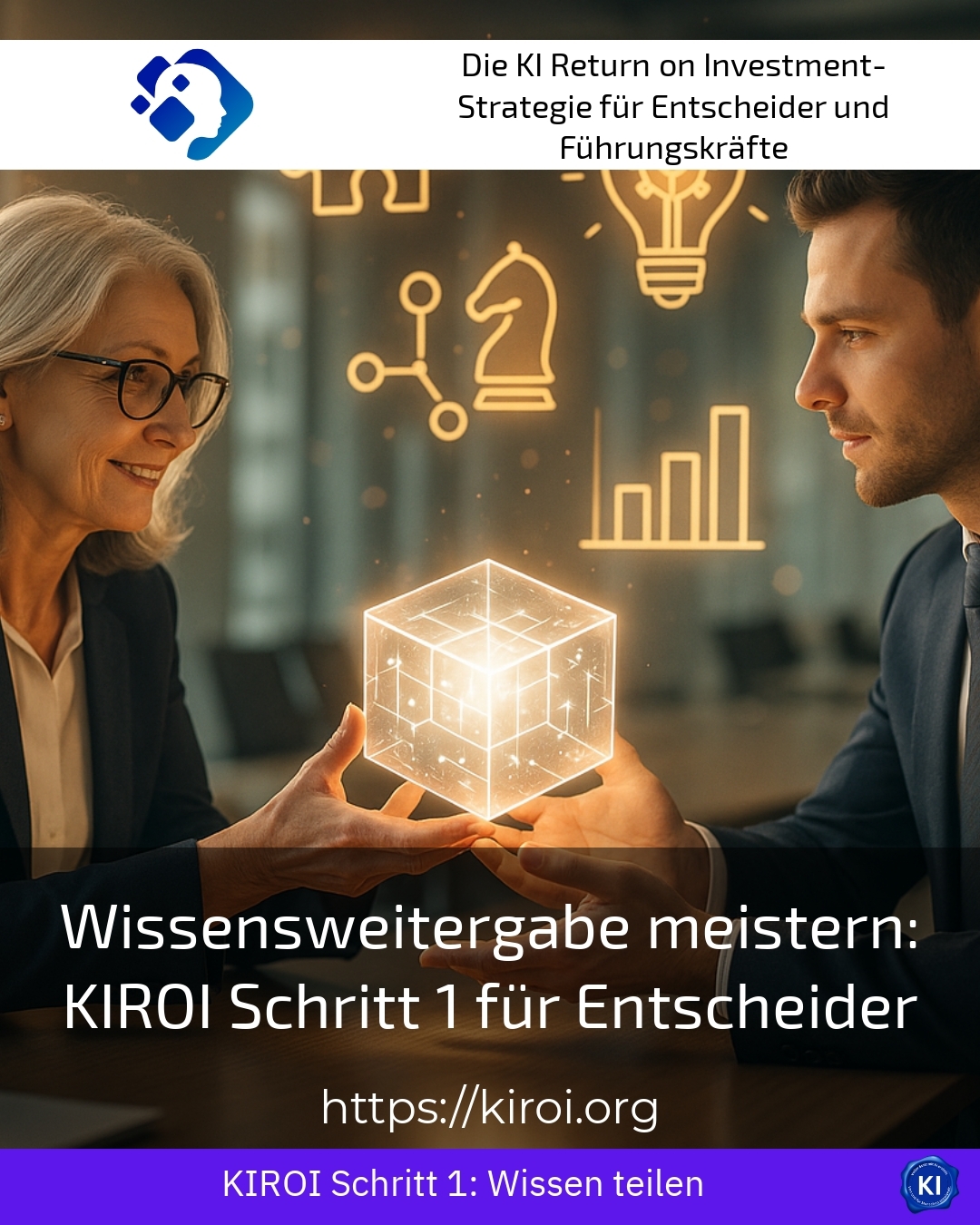Targeted support for knowledge transfer in companies
Knowledge transfer is a key issue when it comes to shaping sustainable collaboration within a company. Many managers are faced with the challenge of establishing the right learning and communication processes so that knowledge is not only retained in the team, but also actively and situationally shared. KIROI Step 1 provides valuable impulses for tackling this complex topic in a structured manner and providing individualised support.
Sharing knowledge means more than just distributing data or documents. It is about creating a learning culture in which employees are motivated to share their expertise as needed and learn from each other. Effective support helps to question established routines and develop new approaches.
The importance of a variety of methods for knowledge transfer
In practice, it has been shown that a methodical approach does not automatically lead to success. The variety of available formats, from storytelling and mentoring to digital learning platforms, must be selected to suit the team and the topic. KIROI helps to make this selection and integrate hybrid forms of learning. For example, on-site workshops can be combined with online modules in order to reach employees with different needs and locations.
Good knowledge transfer is possible when employees see themselves not only as recipients of knowledge, but also as active providers of knowledge. This change of perspective is often achieved through accompanying external impulses that open up the freedom to try out new communication channels.
KIROI BEST PRACTICE at company XYZ (name changed due to NDA contract) In the area of services, targeted coaching has created a network in which knowledge flows reliably and transparently. Communication channels were standardised and supported with easy-to-use tools. This made expert knowledge more visible and accessible to everyone more quickly, which significantly improved collaboration.
Providing impetus for sustainable learning cultures
Sustainable knowledge transfer requires more than occasional input. Regular workshops and training courses can reduce fear of contact and promote a culture of open dialogue. Practical formats that are customised to the individual specialist areas are particularly effective. They create space for exchanging experiences and motivate people to try out new things.
In the production environment, this not only enables knowledge to be passed on, but also strengthens mutual trust. Employees often report that this has improved transparency and that problems are recognised at an earlier stage.
KIROI BEST PRACTICE at company XYZ (name changed due to NDA contract) In a technical company, regular workshops enabled employees to share their experiences with new technologies. Joint learning promoted cross-departmental collaboration and ensured a stronger culture of innovation. The exchange rounds served as a driver for the successful implementation of complex projects.
Knowledge transfer as an integral part of management
Decision-makers are often confronted with the desire to institutionalise knowledge transfer. The focus of KIROI is not to overburden managers with rigid guidelines, but to support them as guides in the change process. This creates space to develop their own solutions that fit the individual environment and involve the employees.
Many report that this coaching approach makes it possible to break down barriers and promote active dialogue. As a result, knowledge transfer is not perceived as an additional task, but as an enriching part of everyday working life.
KIROI BEST PRACTICE at company XYZ (name changed due to NDA contract) One production company used the support to improve the internal transfer of knowledge between shifts. Through targeted instructions for managers, they were able to encourage employees to keep knowledge alive and at the same time introduce new ideas into the processes. This led to greater flexibility and responsiveness in the company.
My analysis
Knowledge transfer works best when it is not understood as one-sided communication, but as a dynamic exchange in a culture that is ready to learn. The individual support of managers and teams is crucial to the success of this process. The focus here is on hybrid formats, the right choice of methods and the active involvement of employees. The reports from various industries show that sustainable improvements in collaboration and innovation can be achieved through targeted impulses.
Further links from the text above:
[1] Rethinking knowledge transfer: Step 1 towards sustainable exchange with KIROI
[4] Mastering knowledge transfer: KIROI Step 1 for decision-makers
[2] Mastering knowledge transfer: KIROI Step 1 for decision-makers
For more information and if you have any questions, please contact Contact us on the topic or read more blog posts on the topic Artificial Intelligence Blog here.















